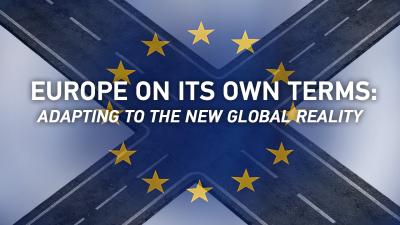Telos' Decentralization Rivals that of Bitcoin and Ethereum
Administrator Kamis, 21 April 2022 07:04 WIB

Telos shows that decentralization is measured in more than just node count
New York, US - 20 April 2022 - Telos Blockchain (ticker: TLOS), the world's most robust and decentralized ESG compliant layer 1 platform and home to the world's fastest, highest capacity EVM (tEVM), derives credible neutrality and decentralization from at least 42 equally distinct validating nodes compared to the much smaller number of major mining pools securing Bitcoin and Ethereum.
After a thorough competitive analysis comparing Telos' decentralization to the decentralization of many of the other top Layer 1 chains, the Foundation has confirmed its assumptions. Based on validator equality and crucial factors regarding architecture and finances, the team confirmed that Telos is indeed one of the leading chains regarding credible neutrality and decentralization.
As mining pools lack equality, massive node counts become irrelevant: As depicted in the pie charts above, Telos, via its governance, has maintained an equitable distribution amongst all its active validators and Bitcoin and Ethereum have not. Instead, the mining pools of both Bitcoin and Ethereum have now become centralized. The hypothesis is that over the years the well-funded pools have overtaken the little ones.
Despite the substantial number of nodes, to be a credibly neutral peer-to-peer network, the network must also sustain even splits in validator power / responsibilities. Without this equality, the insulating strengths of decentralized peer-to-peer networking becomes significantly degraded. A decentralized network made up of equitable validators adds a powerful layer of insulation against multiple scenarios. For example, a multi-government coalition could potentially implement disruptive regulations or restrictions on blockchain. If only a handful of validators / mining pools need to be targeted, it becomes much easier for those governments to impose their will and degrade the insulation that a peer-to-peer network is supposed to provide.
In fact, an event far smaller than this could instantly interrupt some chains from operating as they intended. However, the problem is not just limited to government interference. It is also the potential of a coalition amongst the validator majority that threatens the decentralization and stability of a chain. Despite having many nodes, it appears that for Bitcoin it would take only ~5 large mining pools to form a majority, only -4 for Ethereum and 22 for Telos (as depicted in the pie charts above). Aside from this significant (4x to 5x) difference, it is also worth noting that the community fairly votes the Telos validators into active slots vs Bitcoin / Ethereum in which the mining pool's principles are anonymous and can simply buy their way into a majority position. Hence, the centralization and lack of credible neutrality that has now formed.
Credible neutrality cannot exist in an environment in which control and influence is exerted by small groups of well-funded people. This move towards validator centralization also leads to neutrality questions that are impossible to answer. For example, are the validator majorities' ambitions in line with what is best for the chain or themselves? To put the potential gravity of this into perspective one needs to understand that the principal/s of a majority sized mining pool can easily be a crime syndicate, and no one would know about it due to the anonymity. In fact, all the major mining pools can hypothetically be owned by crime syndicates, and no one would ever know. In contrast to this, with chain-governed validator equality and ongoing fair community voting, these credibility and neutrality questions are simply non-existing issues. In fact, all these chain degrading scenarios are exactly what the Telos architecture and governance have insulated against. As a chain's validator network becomes unequal in size; the more it will move towards centralization, the more its neutrality will become biased and the more these chain breakdown scenarios may become a reality.
Insider allocation cost blockchain's their credible neutrality: Being that Telos was a 100% bootstrap project (95% of the coins airdropped to the community, 5% were used as equal pay to the almost 150 contributors, no insider handouts, and no ICO), the team already knew that its insider allocation was at the same level as Bitcoin's beginnings, zero. Telos is the only L1 chain besides Bitcoin to have ever reached this stage of maturity while still maintaining zero insider allocation. All the other L1 chains are believed to be centralized and unable to become credibly neutral public infrastructure due to their insider allocation (click here to see). With this being noted, these chains will most likely never be utilized by governments as a legal tender and dApps depending on this infrastructure will never be 100% insulated by the full power of credible neutrality and decentralization.
Telos Decentralization: Since its inception, the validators of the Telos Blockchain are both equally sized and regionally / globally diversified. Plus, no ungoverned wallet is known to hold more than 2% of the chain. From chain architecture to finances, decentralization and neutrality are of the highest priority for the chain. Over the last 4 years, Telos has grown into a truly utopian blockchain option for both private and public infrastructure. It is ludicrously fast, very inexpensive, extremely energy efficient, credibly neutral, non-congested, super easy to deploy on and the only chain that fully insulates the public from the front running / MEV that is plaguing Ethereum.
Decentralization Highlights:
Telos is the only third generation layer 1 blockchain to have never done an ICO [initial coin offering] and this non-action alone insulates the chain greatly regarding insider collusion and the SEC security law suits. Telos, at its inception, electively chose to stay a bootstrap project and rise in the same fashion as Bitcoin. All other third generation layer 1 chains (including Ethereum) have done ICOs and will more than likely be forced to file with the SEC as securities. The former and current SEC Chairman have both expressed that every ICO [initial coin offering] they have seen are indeed securities, that they have jurisdiction, and that federal securities laws apply.
The validating architecture of other networks might be structured via peer-to-peer architecture, but they are not credibly decentralized due to the distribution of monetary / voting / validating power. Again, insider allocation is non-existent and as you can see above in the pie charts depicting validator decentralization, Telos Validators are proportionally equal.
Telos governance has the fairest voting system in existence, called Telos Decide. It is tamper-proof and secured by the Tlos coins that investors own. A coin holder can vote on behalf of the coins they hold and rely on outcomes that do not require any further human involvement. No other Layer 1 offers this level of automated community fairness. Especially because the Telos governance documents may be dynamically amended by the votes of the coin holders in a process that is entirely controlled by on-chain smart contracts.
Governments, investors, dApp creators, and end users need not forget that the fundamental features which bring the most value to blockchain are credible neutrality and decentralization. With credible neutrality and decentralization the following attributes are all significantly enhanced:
Utility Redundancy
Security / Trust
Individual Financial Independence
dApp Sovereignty
Fair Voting
Legal Tender
The actions and inactions of Telos are driven by the belief that the public and private sectors require credibly neutral blockchain infrastructure in a third-generation capable format. Credible neutrality, ludicrously fast speeds, energy efficiency, and super low-cost transactions make Telos the perfect crypto currency for the global internet and for the people.






